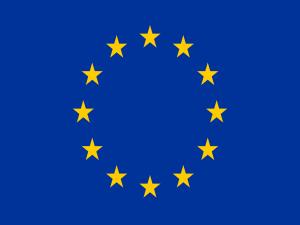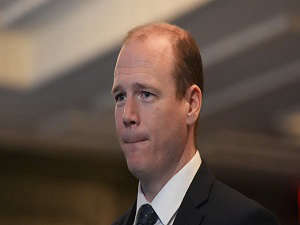
By Press Association Political Staff
UK proposals for a "backstop" arrangement to keep the Irish border open after Brexit are to be published "shortly", Downing Street has said.
The document is expected to set out a time-limited arrangement under which the UK would remain within elements of the EU's customs union, in the event that it is unable to agree a preferred solution for Northern Ireland.
The proposal threatens to test Cabinet unity, with ardent Brexiteers like David Davis reported to be pushing for a provision to ensure the UK can withdraw unilaterally.
News of the impending publication came as Theresa May clashed with Labour leader Jeremy Corbyn at Prime Minister's Questions over the Government's Brexit plans.
After the PM refused to reveal when she will publish the Government's long-awaited Brexit White Paper or announce its preferred customs option, Mr Corbyn said she had delivered "more delays and more cancellations" on the issue than the troubled Northern Rail service.
And he won cheers from Labour MPs by asking whether Mrs May's premiership would survive longer than Northern's franchise.
Mrs May repeated her pledge to avoid a hard border in Ireland and accused Labour of seeking to "frustrate" the Brexit process at every stage.
Time is running out for the UK to set out its backstop plans ahead of a summit of EU leaders in Brussels on June 28-29.
The latest round of official negotiations conclude on Friday, but it was unclear whether the document will be published when Mrs May's Brexit war cabinet meets on Thursday ahead of her departure for the G7 summit in Canada.
Senior Government sources said the war cabinet had agreed what the backstop policy would look like at a meeting last week, but it is thought the final text was only distributed to ministers on Wednesday morning.
Downing Street declined to confirm details of the fallback option, and stressed that the Government does not expect it ever to come into effect, as ministers believe a mutually acceptable arrangement can be agreed before the UK's withdrawal from the EU.
Meanwhile, rebel MPs from both sides of the House of Commons are pushing for a Norway-style Brexit agreement which would keep the UK in the single market.
Both Mrs May and Mr Corbyn have rejected such a deal, but pro-EU MPs claimed remaining in the European Economic Area (EEA) would be the best Brexit deal for jobs and businesses.
The issue will be voted on by MPs when the EU Withdrawal Bill returns to the House of Commons on June 12, with Labour divisions exposed by a shadow cabinet amendment which calls for the UK to negotiate "full access" to the EU internal market but stops short of backing EEA membership.
Party critics have accused the frontbench of "bailing out" the Prime Minister from a potential rebellion on the single market.
At least 12 Conservatives have signalled their support for a future in the EEA in an amendment to the separate Trade Bill.
But shadow Brexit secretary Sir Keir Starmer said EEA membership was too divisive in the Parliamentary Labour Party (PLP).
Asked if he was putting party unity before his beliefs about what is right for the country, he told BBC Radio 4's Today programme: "I'm injecting some honesty about where we are in the Labour Party."
Labour MP Chuka Umunna told the Press Association he would rebel on Tuesday to support the EEA amendment and a "large number" of Labour colleagues would do the same.
"Every single MP needs to make their own decision about this in the national interest and in the interest of their own constituents," he said.
"This is one of those issues where if you just blindly follow orders people will not forgive you."
Former shadow chancellor Chris Leslie said: "We should not be in the business of bailing out Theresa May when she's facing rebellion on the single market."
Pro-EU Tory Anna Soubry, who supports the EEA option, said a majority of MPs would back remaining in the single market if it was put to a free vote but a "culture of fear" was preventing them from speaking out.
At an Open Britain event, she said that Tories at all levels of government - including in the Cabinet - supported an EEA deal.
"They will not speak out, they will not be true to what they believe in," she said.
"That has got to change, we cannot allow this culture of fear that has developed to continue any longer."


 Kneecap announce new song ahead of headline performance at London’s Wide Awake
Kneecap announce new song ahead of headline performance at London’s Wide Awake
 Gordon Lyons to attend first GAA match as Stormont Communities Minister
Gordon Lyons to attend first GAA match as Stormont Communities Minister
 Fresh appeal over 1973 murder of 18-year-old whose body was found in quarry
Fresh appeal over 1973 murder of 18-year-old whose body was found in quarry
 Kneecap say terror charge is ‘carnival of distraction’ and ‘political policing’
Kneecap say terror charge is ‘carnival of distraction’ and ‘political policing’
 Woman assaulted while jogging in West Belfast
Woman assaulted while jogging in West Belfast